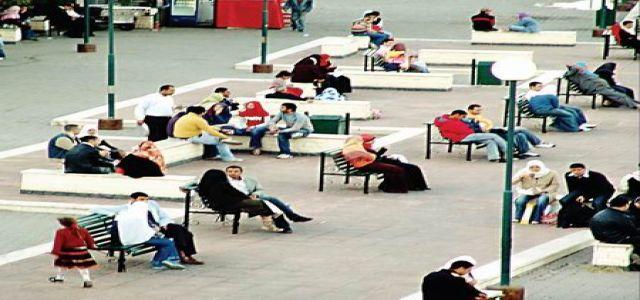- Reports
- January 13, 2010
- 4 minutes read
High cost of living means more unmarried in Egypt

CAIRO: A report issued by the Egyptian Cabinet’s Information Center revealed the delayed age of marriage for women in Egyptian society by approximately one and a half years when comparing statistics from 1992 and 2008. It said the average age of marriage rose from 19.2-years-old in 1992 to 20.6-years-old in 2008, and ascribed this to the increase of the burdens of life and the cost of marriage.
The report was issued under the title “Late Age of Marriage: Is it a problem that needs a solution?” It considered that the entry of women into the labor market has led to a later age of marriage and a rising proportion of females who have never married among those women over 30-years-old and older to 6.3 percent of employed women versus 2.9 percent for non-workers. This also increased when considering the ratio between women with a degree higher than a secondary education to 8.8 percent versus 2.4 percent in educational levels at a lower position.
The report said that Egypt had about 1.44 million who never married in 2006, the percentage of those who have never married in the age group 30-34 was at 11.7 percent and the total of approximately 553,000 persons. The percentage dropped to 4.5 percent in the age group 35-39-years-old, and only 1.6 percent unmarried in the age group 40-years-old and beyond.
The report said around 3.9 percent in the age group 30-years-old and more of the total population who were never married in 2006, pointing out that 5 percent of males in this age group have never married and up to about 673,000 young men, as well as 2.8 percent of females in the same age group and their number reached 371,000 girls, as a number of never-married in the age group more than 35-years-old was some 277,000 and 215,000 young girls.
It also pointed out that the average age at marriage for males was about 29-years-old in 2008 compared to 24-years-old for women.
The report identified the reasons for late marriage age, most notably the high marriage expenses, which constitute the biggest obstacle, as confirmed by 61 percent of youth, and the crisis of finding proper housing by 52 percent as well as the lack of suitable job opportunities by 30 percent.
**reporting by Mohamed Abdel Salam



